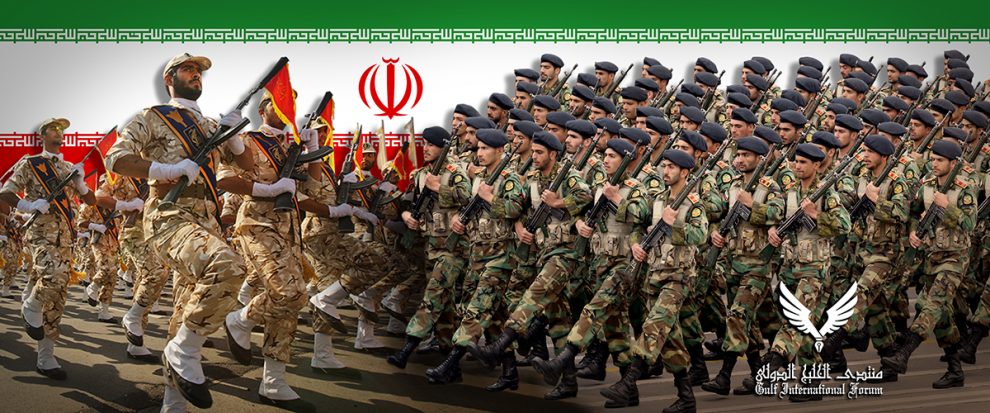On January 28, drones from an unidentified actor struck a military factory in Isfahan, Iran. The attack comes after Iran’s decision to supply domestically built drones to Russia to prosecute its war in Ukraine. Iranian officials blamed Israel for the attack and promised to enact revenge. Independent Western media appeared to concur that Mossad was behind the attack. In the event’s aftermath, Iran’s envoy to the United Nations said that Tehran “reserves its legitimate and inherent right to defend its national security and firmly respond to any threat or wrongdoing of [Israel] wherever and whenever it deems necessary.”
A Clear Pattern
This is not the first time that Iranian military personnel and facilities have been targeted for destruction or sabotage. From cyberattacks to assassinations, the Iranian regime has suffered a string of mysterious setbacks over the last half-decade. Iranian officials have primarily pointed the finger at Israel for these incidents, and although Israeli officials have neither confirmed nor denied their involvement in these attacks, they have publicly expressed satisfaction with the outcomes—seemingly a tacit admission of responsibility.
Although Israel’s covert actions amount to a blatant violation of Iranian sovereignty, the government has yet to retaliate in any meaningful way. After each instance of sabotage or assassination, Tehran condemns the perpetrators and vows revenge, but in practice it is never accomplished. In this sense, then, Iranian rhetoric and policy are quite contradictory; Tehran always reserves its right to respond with force, but never actually exercises this right.
One might think that prudence guides the policies of the Islamic Republic, but this is not the case. The Iranian military’s capacity and capabilities—or the lack thereof—provide an insight into its inability to mount a muscular response. Iran’s regional policy is regime-centered, and Tehran considers the strength of its foe before its own when deciding to act. In other words, it determines its foreign policy by comparing the strength of a state or non-state actor against its own. If a country is weak or the enemy is a non-state actor, Iran rarely hesitates to use military force to achieve its objectives. For example, the Iranian army has launched repeated attacks against the Kurdistan Regional Government in neighboring Iraq, governed autonomously by the Kurds, because the KRG’s military is far weaker than Tehran’s own.
When a country is a middle power like Turkey, such direct action is infeasible. Instead, Tehran prefers to rely on proxy groups to achieve its foreign policy goals. Outright conflict between Iranian forces and those of a regional power is extremely rare; Turkish and Iranian soldiers have never directly fought against one another during a military conflict. Yet the Turkish army has been attacked by Iranian proxies hundreds of times in both Iraq and Syria—the most recent example being an attack on Turkey’s Bashiqa base, located in Northern Iraq, by a militia group within the Iran-aligned Popular Mobilization Forces. The Islamic Revolutionary Guard Corps (IRGC) has also supported Syrian regime forces and militias during their operations against the Turkish army. Tehran maintains a presence in many other countries through its proxies, e.g. Hezbollah in Lebanon, and although it officially denies it, it has used these groups to launch de facto wars against its enemies.
However, when Iran encounters states with more advanced weapons that it can hardly hope to defeat, the government proceeds with extreme caution. While Iran never hesitates to use harsh rhetoric against Israel and the West, it has avoided attempting to kick the hornets’ nest because the regime is aware that it has no chance to achieve victory on the battlefield. Iran also knows that brinkmanship with a nuclear–armed, Western-backed adversary like Israel may end in disaster. Thus, the best way Iran can proceed is to save face with words while doing relatively little militarily to provoke these powerful actors.
Carrots and Sticks
Iran has also consistently used its proxies to spread Shia revolutionary ideology, which remains a core pillar of its foreign policy. Indeed, the regime continues to use force to threaten smaller states and employ ideology to integrate Shia communities into its network of partner forces. It drew from the Hazara Shia community in Afghanistan to create the Fatemiyoun Brigade, and has deployed this group throughout the region to fight on Iran’s behalf.
When Tehran’s poor relations with foreign Shia communities render cooperation unlikely, the Islamic Republic turns to force. Azerbaijan is a good example of a small country with a Shia-majority population, but its relations with the Islamic Republic have never been good. Thus, Tehran has supported Armenia in its multiple wars with Azerbaijan. Most recently, reports surfaced that Tehran had threatened to attack Azerbaijan if Tehran’s interests in the Caucasus were imperiled. Also, in October 2022, the ground forces of the IRGC started massive military drills along the Araz River on the border with Azerbaijan. During the exercises, Iran employed pontoon bridges to practice crossing a river, which forms the natural border between Azerbaijan and Iran.
Despite these tendencies and trends in behavior, Iran’s military power should not be underestimated. First, the country’s defense industry is full of surprises. Its missiles, drones, and other weapons systems have repeatedly proved to be more effective than known. The Shahed-136 suicide drones in particular have proven extremely effective against the Ukrainian army. Moreover, Iran’s various proxies grant it many fronts across the region which can affect regional security. In the case that Iran is attacked, the belligerent should consider the damage that pro-Iran proxies can wreak, even if conflict occurs in another theater.
Source: Gulf International Forum






